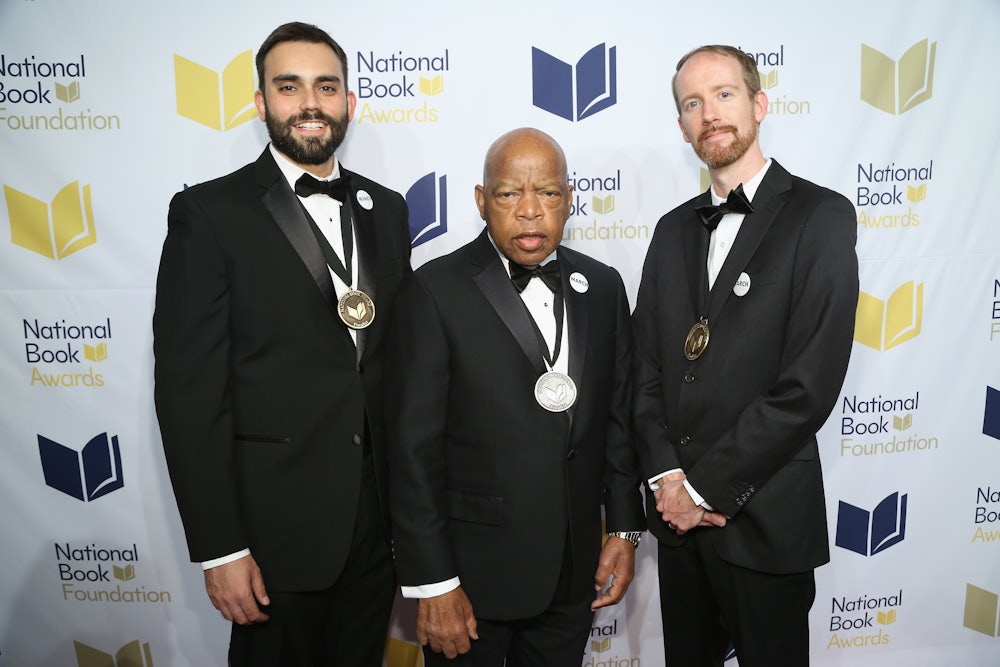Congressman John Lewis’s March: Book Three won for Young People’s Literature; Daniel Borzutzky’s The Performance of Becoming Human won for Poetry; Ibram X. Kendi’s Stamped from the Beginning: The Definitive History of Racist Ideas in America took home the Nonfiction prize; while Colson Whitehead’s The Underground Railroad won in the Fiction category.
Kendi’s victory was perhaps the biggest surprise—many (myself included) expected Arlee Russell Hochschild to take home the prize for Strangers in Their Own Land: Anger and Mourning on the American Right. But Kendi’s book—praised by Masha Gessen as being work that “will change the way that you see this country and the way that you think about the most important issues of this day”—is a staggering intellectual history of racism in America that is both rigorous and (the worst word in book reviewing, however apt) readable. Whitehead’s The Underground Railroad, a ferocious and imaginative retelling of antebellum America, was the runaway favorite.
The National Book Awards are all decided independently and on the day of the ceremony itself. And while the judges for each category don’t confer with each other, it’s clear that the same themes were weighing on their minds: Three out of the four books that won this year deal directly, honestly, and at times uncomfortably with America’s racist history, a history that has become all the more important in the last eight days.
